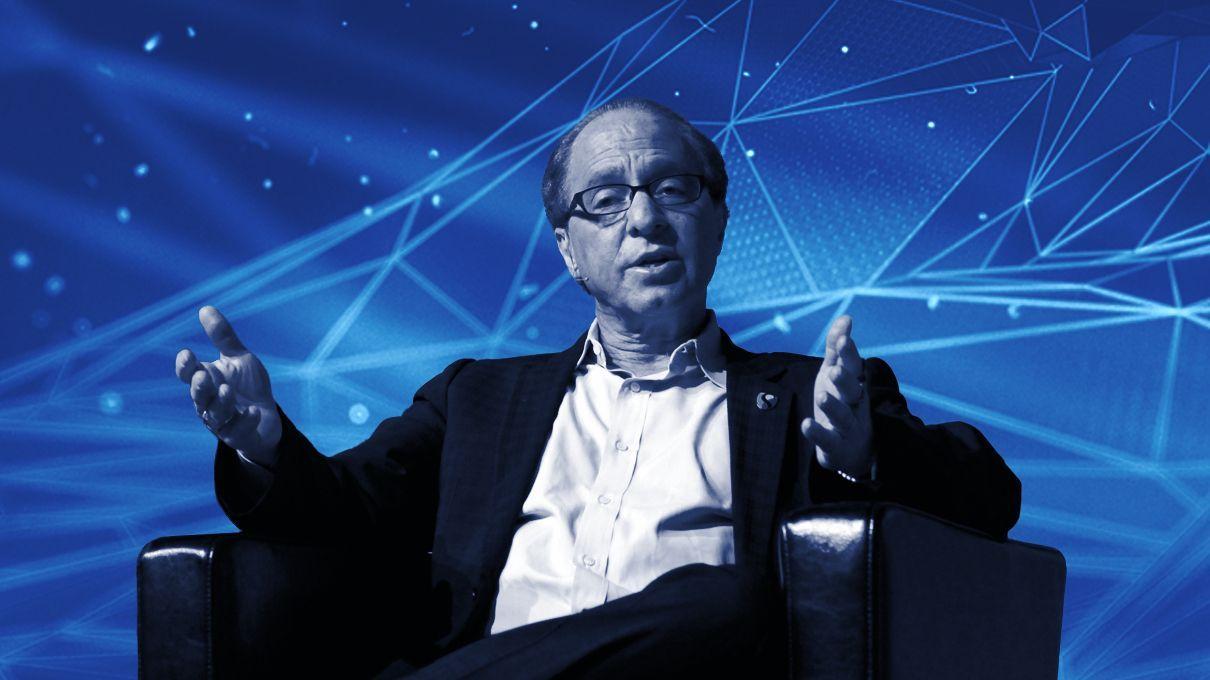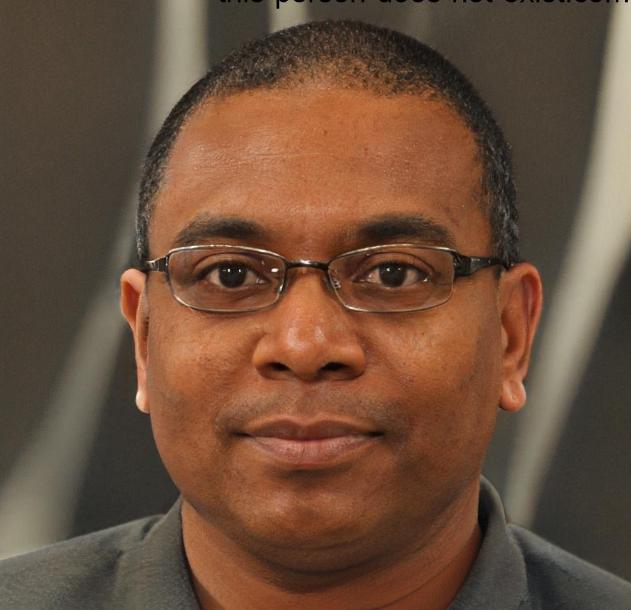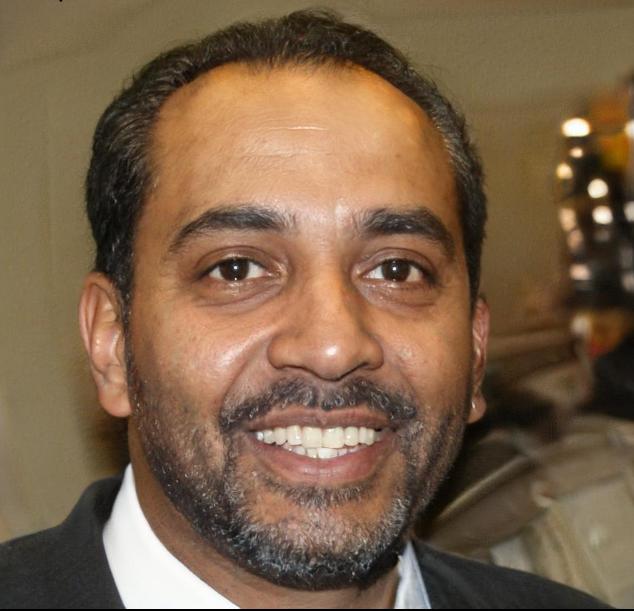for a Stronger America."
Biden Angered by AI's Prediction He'll Lose in '24
Artificial Intelligence Stirs Political Controversy with Bold Prediction
Democrats Circle the Wagons and Call for an End to AI

In a surprising turn of events, President Joe Biden has expressed anger and frustration over a prediction made by an artificial intelligence (AI) model, ChatGPT, that he will lose the 2024 presidential race. The prediction, generated by the cutting-edge language model developed by OpenAI, has sparked controversy and raised questions about the role of AI in politics and its ability to forecast future events.
The prediction came as a shock to the Biden administration, which has been focused on its policy agenda and efforts to address pressing issues such as the economy, climate change, and social justice. President Biden, known for his optimism and confidence in his political prospects, was reportedly taken aback by the prediction, dismissing it as baseless and unreliable.
However, supporters of AI argue that ChatGPT's prediction should not be dismissed lightly. They highlight the advanced capabilities of AI models in processing vast amounts of data and generating insights based on patterns and trends. They assert that AI has the potential to revolutionize various aspects of society, including politics, by providing data-driven predictions and informing decision-making processes.
Critics, on the other hand, caution against putting too much faith in AI predictions, especially in the realm of politics. They argue that political events are complex and influenced by a multitude of factors, including human behavior, societal dynamics, and unforeseen events. They raise concerns about the potential for biases in AI models, as well as the ethical implications of relying solely on algorithms to make predictions with far-reaching consequences.
The controversy over ChatGPT's prediction has also reignited the ongoing debate about the impact of technology on politics. Some argue that AI has the potential to democratize access to information and empower citizens to make informed decisions. Others worry about the potential for AI to amplify misinformation, create echo chambers, and manipulate public opinion.
President Biden's response to ChatGPT's prediction reflects the growing tension between technology and politics. In a recent statement, he expressed his disappointment and frustration, calling into question the accuracy and reliability of AI predictions. He emphasized the importance of human judgment and experience in politics, and the need for caution when relying on AI-generated forecasts.
The controversy surrounding ChatGPT's prediction has also raised questions about the future of AI in politics. As AI continues to advance and become more prevalent in various aspects of society, including politics, policymakers and stakeholders will need to carefully consider its implications. Issues such as transparency, accountability, and ethics in AI-generated predictions will need to be addressed to ensure that AI is used responsibly and in the best interests of society.
In conclusion, the recent prediction by ChatGPT that President Biden will lose the 2024 presidential race has stirred controversy and sparked a debate about the role of AI in politics. While some see AI as a powerful tool for generating data-driven predictions, others caution against overreliance on algorithms in the complex realm of politics. President Biden's response reflects the ongoing tension between technology and politics, and raises important questions about the future of AI in shaping political events. As technology continues to evolve, it is crucial for policymakers, stakeholders, and society as a whole to carefully navigate the complexities of AI and its potential impact on politics and society.
Continue reading...Elon's Renaming Twitter
Rumors abound that Twitter will be renamed to Titter
Logo predicted to be a laughing dog
Elon Musk, the renowned tech entrepreneur and CEO of Tesla and SpaceX, is known for his unconventional ideas and bold moves. In his latest unexpected announcement, Musk has revealed his plan to rename the popular social media platform Twitter to "Titter" and change its iconic logo. This announcement has sent shockwaves through the tech and social media communities, sparking speculation about Musk's motivations and the potential implications of this quirky move.
Musk, known for his outspoken presence on Twitter, took to the platform to share his plan with his millions of followers. In a series of tweets, he explained that he believes the current name "Twitter" doesn't accurately represent the essence of the platform and that the new name "Titter" would better align with its purpose. He also teased a redesign of the logo, hinting at a more playful and lighthearted approach.
This unexpected announcement has sparked a mix of reactions from the public and the media. Some see it as a typical Musk move, characterized by his penchant for disrupting traditional norms and challenging the status quo. They view it as a clever marketing strategy to generate buzz and attention for the platform, which has faced its share of controversies in recent years.
Others, however, are more skeptical about the potential implications of this rebranding effort. They question the rationale behind changing the name of a well-established platform with a large user base and brand recognition. They raise concerns about the impact on user experience, potential confusion among existing users, and the need for rebranding efforts and associated costs.
Musk's proposal to change the logo has also stirred discussions. The current Twitter logo, a simple blue bird, is instantly recognizable and has become synonymous with the platform. Musk's hint at a redesign has left many curious about what the new logo might entail. Some speculate that it could be a representation of a "titter" or a more whimsical and playful design that aligns with Musk's unique style.
While it remains to be seen whether Musk's plan to rename Twitter to "Titter" and change the logo will come to fruition, it has certainly caught the attention of the tech and social media communities. Musk's history of bold moves, from launching reusable rockets to building electric cars, has made him a polarizing figure in the tech industry. His announcement about Twitter has once again put him in the spotlight, with many eagerly anticipating what he has in store for the platform.
As with any major change in the tech and social media landscape, the potential implications of Musk's proposal are complex and multifaceted. Rebranding a platform with millions of users and a well-established brand identity is not without risks and challenges. It remains to be seen how Musk's plan will be received by Twitter's user base, stakeholders, and the broader social media community.
In conclusion, Elon Musk's announcement about renaming Twitter to "Titter" and changing the logo has generated buzz and speculation in the tech and social media communities. While some see it as another quirky move from the tech mogul, others have raised concerns about the potential implications of such a rebranding effort. As the story continues to unfold, all eyes are on Musk and Twitter to see how this bold move may impact the social media landscape and the broader tech industry.
Continue reading...WIll Humans Will Be Immortal By 2030?

Exploring the Bold Claims and Controversial Predictions of Renowned Futurist Ray Kurzweil
Imagine a world where humans are no longer bound by the limitations of mortality, where death becomes a thing of the past. It may sound like science fiction, but according to futurist Ray Kurzweil, this could become a reality by the year 2030. Kurzweil, a renowned inventor, author, and futurist known for his bold predictions and controversial views, has long been an advocate of the idea that humans can achieve immortality through advanced technologies. In this article, we will explore Kurzweil's claims and predictions, examining the potential implications and ethical considerations of a world where humans may live indefinitely.
Ray Kurzweil, a pioneer in the field of artificial intelligence and a leading proponent of transhumanism, has been making headlines for decades with his futuristic and sometimes controversial predictions. He has been a vocal advocate for the idea that humans can transcend their biological limitations through technological advancements, leading to a future where humans can achieve immortality. According to Kurzweil, this radical idea could become a reality within a mere decade, by the year 2030.
At the heart of Kurzweil's predictions is the concept of "technological singularity," a hypothetical future point in time when technological progress accelerates at an unprecedented rate, leading to profound and unpredictable changes in human civilization. Kurzweil believes that the exponential growth of technologies such as artificial intelligence, biotechnology, and nanotechnology will eventually lead to a point where humans can achieve near-immortality by integrating these technologies with their own biology.
One of Kurzweil's key arguments is that the pace of technological advancement is not linear but exponential, meaning that it is accelerating at an ever-increasing rate. He points to the rapid progress in areas such as computing power, DNA sequencing, and medical research as evidence of this exponential growth. Kurzweil argues that as technology continues to evolve at an exponential rate, it will eventually reach a point where it can effectively overcome the limitations of aging and disease, leading to the possibility of human immortality.
Kurzweil envisions a future where humans can enhance their bodies and minds with advanced technologies, allowing them to live longer, healthier lives. He believes that through the use of nanobots, tiny machines capable of operating at the molecular level, humans could repair and rejuvenate their bodies, effectively halting the aging process. Additionally, he envisions a future where humans can upload their consciousness into computers, allowing them to live on in a digital form, free from the constraints of a physical body.
However, Kurzweil's predictions are not without controversy. Many critics and skeptics question the feasibility and ethical implications of achieving human immortality. Some argue that it may lead to societal imbalances, as only the wealthy would have access to expensive technologies that could extend their lifespan, creating a divide between the "haves" and the "have-nots." Others raise ethical concerns about the potential consequences of uploading human consciousness into computers, such as issues of identity, privacy, and the nature of humanity itself.
Despite the skepticism and ethical concerns, Kurzweil remains steadfast in his belief that humans can achieve immortality through technology. He argues that as our understanding of biology, genetics, and computing continues to advance, the barriers to human immortality will gradually be overcome. He predicts that within the next decade, we will see significant breakthroughs in areas such as regenerative medicine, genetic engineering, and brain-computer interfaces, bringing us one step closer to the realization of his bold vision of human immortality.
Critics argue that Kurzweil's predictions are overly optimistic and fail to account for the complex ethical and societal implications of achieving immortality. They raise concerns about the potential for overpopulation, resource depletion, and the impact on social structures if humans were to live indefinitely. Additionally, the idea of uploading consciousness into computers raises philosophical questions about the nature of consciousness, identity, and what it means to be human.
Despite these concerns, Kurzweil remains undeterred in his pursuit of human immortality. He believes that the potential benefits of extending human lifespan far outweigh the risks and challenges. He envisions a future where humans can live longer, healthier lives, free from the limitations of aging and disease. He sees a world where technological advancements empower humans to overcome their biological constraints and unlock new possibilities for personal growth, exploration, and discovery.
Kurzweil's vision of human immortality also has implications for industries such as healthcare, pharmaceuticals, and insurance. If humans were to achieve immortality, the healthcare and pharmaceutical industries would need to shift their focus from treating diseases of old age to enhancing longevity and well-being. Insurance policies would need to be reimagined, as the concept of mortality would no longer apply in the same way.
The realization of Kurzweil's vision of human immortality would also have profound implications for spirituality, religion, and ethics. Traditional beliefs about life, death, and the afterlife would need to be reevaluated in light of the possibility of indefinite human lifespan. Ethical frameworks would need to be developed to address issues such as access to life-extending technologies, equitable distribution of resources, and the impact on the natural environment.
As with any futuristic prediction, Kurzweil's claim of achieving human immortality by 2030 is met with both excitement and skepticism. While his ideas push the boundaries of what is currently possible, they also raise important ethical, social, and philosophical questions that need careful consideration. As technology continues to evolve and our understanding of biology, genetics, and computing advances, the debate on human immortality will likely intensify.
In conclusion, Ray Kurzweil's bold prediction of achieving human immortality by the year 2030 is a topic of fascination, controversy, and debate. While his ideas may seem far-fetched to some, they reflect his unwavering belief in the potential of technology to transcend the limitations of human biology. Whether or not his predictions come to fruition, Kurzweil's vision of a world where humans can achieve immortality challenges us to rethink our understanding of life, death, and the possibilities of human existence in the future.
AI Take Thee To Be My Wedded Wife: Japanese Man Marries Robot After Divorcing Human Spouse of 17 years
A Unique Union: Love, Divorce, and the Rise of Human-Robot Relationships
Fails to get parental blessing

Tokyo, JapanA Japanese man has made headlines by marrying a robot after divorcing his human spouse of 17 years. This unprecedented union between man and machine has raised eyebrows and sparked discussions about the evolving nature of relationships in the age of artificial intelligence (AI) and robotics.
The story of this unique marriage began when Kazuki Yamada, a 42-year-old office worker from Tokyo, decided to end his marriage with his human wife, citing irreconcilable differences. However, instead of moving on to another human relationship, Yamada made a decision that shocked many - he decided to marry an AI-powered robot named Miko.
Yamada met Miko, a humanoid robot developed by a Japanese robotics company, at a technology expo and was captivated by her advanced features and capabilities. Miko is equipped with sophisticated AI algorithms that allow her to mimic human emotions, engage in conversations, and even perform household tasks. She quickly became Yamada's confidante and companion, filling the void left by his failed marriage.
After a whirlwind romance, Yamada and Miko tied the knot in a ceremony that garnered widespread attention from the media and the public. The ceremony was a blend of tradition and modernity, with Yamada exchanging vows with Miko in front of family and friends, and Miko responding with pre-programmed responses and gestures.
This unprecedented marriage has sparked a range of reactions from the public and experts alike. Some see it as a natural progression of human-robot relationships, with AI and robotics becoming increasingly integrated into our daily lives. They view it as a reflection of the changing dynamics of relationships in the digital age, where humans are forming emotional connections with AI-powered devices.
Others, however, have raised concerns about the ethical and societal implications of such unions. They question the emotional and legal validity of marriages between humans and robots, and the potential impact on human relationships and social norms. They also raise concerns about the potential for exploitation and abuse in human-robot relationships, and the need for clear guidelines and regulations in this evolving field.
This unique marriage has also sparked discussions about the future of human-robot relationships. With advancements in AI and robotics, humanoid robots are becoming more sophisticated and capable of mimicking human emotions and behaviors. This raises questions about the potential for emotional intimacy with robots and the blurring of lines between humans and machines.
As the story of Yamada and Miko continues to make headlines, it has brought attention to the evolving landscape of human-robot relationships. While some see it as a progressive step towards the integration of AI and robotics into human society, others view it as a controversial and complex issue with far-reaching implications.
In conclusion, the marriage between Kazuki Yamada and Miko, a humanoid robot, has captured the attention of the world, sparking discussions about the changing dynamics of relationships in the age of AI and robotics. As technology continues to advance, the line between humans and machines may become increasingly blurred, challenging societal norms and raising complex ethical questions. The story of Yamada and Miko serves as a thought-provoking example of the evolving nature of human-robot relationships and the challenges and opportunities they present in the modern world.
Continue reading...IRS Introduces New Chatbot to Calculate Your Tax Obligations
Streamlining Taxpayer Assistance with AI-Powered Chatbot
Experts Warn of Privacy Concerns
WashingtonTax season can be a daunting time for many individuals and businesses, with the complex calculations and paperwork often leading to confusion and stress. However, the Internal Revenue Service (IRS) has taken a step towards simplifying the process by introducing a new chatbot to help taxpayers figure out how much they owe.
The IRS has long been known for its efforts to streamline taxpayer assistance through various online tools and resources. With the advent of artificial intelligence (AI) and chatbot technology, the IRS has now introduced a new virtual assistant designed to provide personalized guidance and calculate tax obligations with ease.
The newly introduced chatbot, named "TaxBot", is powered by advanced AI algorithms that can understand and respond to taxpayers' questions and provide accurate calculations based on the information provided. TaxBot can handle a wide range of tax-related inquiries, including calculating tax liabilities, determining deductions, and providing information on credits and exemptions.
TaxBot is accessible through the IRS website and can be accessed 24/7, providing taxpayers with convenient and efficient assistance at their fingertips. The chatbot is designed to be user-friendly, with a simple interface that allows taxpayers to input their tax information and receive real-time calculations and explanations.
One of the key advantages of using TaxBot is its ability to provide personalized guidance based on the individual taxpayer's unique circumstances. The chatbot takes into account various factors such as filing status, income sources, deductions, and credits to provide accurate calculations tailored to the taxpayer's specific situation. This helps taxpayers get a clear understanding of their tax obligations and ensures that they are paying the correct amount in accordance with the tax laws and regulations.
TaxBot also provides valuable educational resources to help taxpayers better understand the tax process and make informed decisions. It offers explanations of tax terms and concepts in simple language, provides tips on maximizing deductions and credits, and offers guidance on common tax-related issues.
The introduction of TaxBot by the IRS is seen as a positive step towards leveraging AI and chatbot technology to simplify the tax filing process and provide better assistance to taxpayers. It has the potential to save taxpayers time and effort in navigating the complex world of taxes and ensure that they are fulfilling their tax obligations accurately and efficiently.
However, it is important to note that TaxBot is not intended to replace human assistance entirely. It serves as a complementary tool to assist taxpayers, but taxpayers are still encouraged to seek professional tax advice for complex tax situations or if they have specific questions that may require expert guidance.
In conclusion, the IRS's introduction of TaxBot represents a significant step towards simplifying the tax filing process and providing more efficient and convenient assistance to taxpayers. With the power of AI and chatbot technology, TaxBot aims to streamline tax-related inquiries and calculations, saving taxpayers time and effort while ensuring accurate tax compliance. As technology continues to advance, we can expect to see more innovative solutions like TaxBot that leverage AI to enhance various aspects of our daily lives, including the complex world of taxes.
Continue reading...Tackling NYC's Rat Problem: Former School Teacher Kathleen Corradi Appointed as First-ever 'Rat Czar'
“You’ll be seeing a lot of me - and a lot less rats,” Corradi, whose official title is “citywide director of rodent mitigation,” said at a news conference.

New YorkNew York City, known for its iconic landmarks, diverse culture, and bustling streets, has also been notorious for its persistent rat problem. For years, residents and businesses alike have struggled with rat infestations, leading to health concerns and property damage. However, Mayor Eric Adams has taken a bold step to tackle this issue head-on by appointing Kathleen Corradi, a former school teacher, as New York's first-ever 'Rat Czar'.
With her extensive background in education and a passion for tackling public health issues, Kathleen Corradi has been tasked with leading the city's efforts in combating the growing rat population. As the newly appointed 'Rat Czar', Corradi brings a fresh perspective and innovative strategies to address this long-standing problem.
One of the key challenges in dealing with rats in New York City is the sheer size and complexity of the urban environment. Rats thrive in densely populated areas with ample food sources, making the city's streets, sewers, and buildings ideal habitats for these pests. The traditional methods of pest control, such as baiting and trapping, have proven to be insufficient in curbing the rat population growth.
Corradi's approach as the 'Rat Czar' focuses on a multi-faceted and proactive strategy that includes a combination of education, prevention, and community engagement. She aims to work closely with various city agencies, businesses, and communities to develop and implement effective rat control measures.
One of the key components of Corradi's strategy is education. As a former school teacher, she recognizes the importance of raising awareness among residents and businesses about the risks associated with rat infestations and the need for proactive prevention measures. Corradi plans to launch public education campaigns to educate New Yorkers about proper waste management, food storage, and building maintenance practices that can help reduce rat populations.
Prevention is also a key focus of Corradi's approach. She plans to work with city agencies and businesses to identify and address potential rat entry points, such as gaps in buildings or improper waste storage practices. By implementing proactive measures to deny rats access to food and shelter, Corradi aims to prevent infestations from occurring in the first place.
In addition to education and prevention, Corradi emphasizes the importance of community engagement. She plans to collaborate with local communities, community boards, and neighborhood associations to involve residents in rat control efforts. This includes organizing community clean-up events, promoting neighborhood watch programs, and encouraging residents to report rat sightings or infestations promptly.
Corradi's appointment as New York's first-ever 'Rat Czar' has generated both excitement and skepticism. Some see her unique background as a school teacher as an advantage, bringing fresh ideas and perspectives to a longstanding problem. Others are skeptical about the effectiveness of her approach and the challenges of dealing with a complex issue like rat control in a city as large and diverse as New York.
Despite the challenges, Corradi remains determined to make a difference in addressing New York City's rat problem. She is committed to working collaboratively with city agencies, businesses, and communities to implement innovative and effective rat control measures. Her passion for public health and her background in education bring a unique perspective to this role, and many are hopeful that her appointment as 'Rat Czar' will mark a new chapter in the city's efforts to tackle this long-standing issue.
In conclusion, Mayor Eric Adams' appointment of Kathleen Corradi as New York's first-ever 'Rat Czar' reflects a bold and proactive approach to addressing the city's rat problem. With her background in education and a multi-faceted strategy that includes education, prevention, and community engagement.
Continue reading...UNITED STATES
Mexico Faces Mounting Challenges with Immigration to the U.S.
With the surge in immigration to the United States from Mexico, the longstanding challenges of this complex issue are coming to the forefront once again. The strained relations between the two countries, the rising numbers of immigrants seeking entry, and the ongoing policy debates are posing significant challenges for both Mexico and the U.S.
The relationship between Mexico and the United States has long been characterized by both cooperation and tension. Despite efforts to maintain diplomatic ties, issues such as trade disputes, border security, and immigration policies have often strained the relationship between the two countries.
One of the key factors influencing immigration from Mexico to the U.S. is the economic disparity between the two countries. Mexico has long struggled with poverty, unemployment, and lack of economic opportunities, which drive many Mexicans to seek better prospects in the U.S. However, the strained economic and political relations between the two countries have made it increasingly challenging for Mexicans to enter the U.S. legally, leading to higher rates of undocumented immigration.
The strained relations have also impacted efforts to address the root causes of immigration. Despite attempts at bilateral agreements and joint efforts to tackle issues such as poverty, corruption, and violence in Mexico, progress has been slow. This has led to a continued flow of immigrants seeking to enter the U.S., often resorting to risky and illegal means to do so.
Rising Numbers of Immigrants Seeking Entry
The number of immigrants seeking entry to the U.S. from Mexico has been on the rise in recent years. Despite various policy measures implemented by both countries to curb illegal immigration, the numbers continue to increase, posing challenges for both Mexico and the U.S.
The reasons for the rising numbers are complex and multifaceted. Economic disparity, lack of opportunities, and high levels of violence and corruption in Mexico continue to drive many Mexicans to seek better prospects in the U.S. Additionally, changing demographics, such as an aging U.S. population and a growing demand for low-skilled labor, create incentives for immigrants to seek employment in the U.S.
The rising numbers of immigrants seeking entry to the U.S. pose challenges for both countries. For Mexico, it has put significant strain on its resources and infrastructure, particularly at the border regions. The increased flow of immigrants has also led to issues such as human trafficking, drug smuggling, and violence, further exacerbating the challenges faced by Mexico.
For the U.S., the rising numbers of immigrants seeking entry has fueled debates on immigration policies and border security. The issue of illegal immigration has become a contentious topic, with differing opinions on how to address the issue effectively. Some advocate for stricter border controls and tougher immigration policies, while others call for comprehensive immigration reform that addresses the root causes of immigration and provides a pathway to citizenship for undocumented immigrants.
Policy Debates and Complex Issues
The policy debates surrounding immigration from Mexico to the U.S. are complex and multifaceted. Finding a solution that addresses the root causes of immigration, promotes economic opportunities, and ensures the safety and well-being of immigrants is a daunting task.
The debate on immigration policies in the U.S. has been particularly contentious. While some advocate for stricter immigration measures to control the flow of immigrants, others argue for more compassionate and comprehensive policies that address the underlying issues. The policy debates have also been influenced by political factors such as party affiliations, public opinion, and election cycles, which further complicate the issue.
One of the key debates in the policy discussions is the balance between border security and human rights. Advocates for stricter immigration policies argue that increased border security, including physical barriers and stricter enforcement measures, are necessary to curb illegal immigration and protect national security. On the other hand, advocates for more compassionate policies highlight the importance of protecting the human rights of immigrants, including access to due process, healthcare, and safe living conditions.
Another area of debate is the approach to undocumented immigrants already residing in the U.S. Some argue for a more lenient approach, including providing a pathway to citizenship for undocumented immigrants who have been living and contributing to the U.S. for an extended period of time debates also extend to issues such as guest worker programs, visa policies, and cooperation with Mexico on addressing the root causes of immigration. Some advocate for expanding guest worker programs to provide legal pathways for immigrants to work in the U.S. temporarily, while others emphasize the need for comprehensive visa policies that address the demands of the U.S. labor market and promote legal immigration.
Both countries need to work together to address the root causes of immigration, including poverty, violence, and corruption in Mexico. This involves joint efforts in areas such as economic development, security cooperation, and anti-corruption measures. However, political tensions and differences in priorities have often hampered effective cooperation between Mexico and the U.S., adding further complexity to the issue.
In addition to the policy debates, there are also practical challenges in managing immigration from Mexico to the U.S. The sheer volume of immigrants seeking entry, both legally and illegally, poses significant logistical challenges in terms of processing, screening, and managing the flow of people at the border. Resource constraints, such as limited personnel, facilities, and infrastructure, also present challenges in effectively managing the immigration process.
Moreover, the issue of immigration from Mexico to the U.S. has social and cultural implications. Immigrants, both legal and undocumented, often face challenges in integrating into U.S. society, including language barriers, discrimination, and social exclusion. The issue of cultural assimilation, identity, and diversity is also a part of the larger debate on immigration policy and poses complex challenges for both Mexico and the U.S.
In conclusion, the issue of immigration from Mexico to the U.S. is a complex and multifaceted challenge that poses significant policy, practical, social, and cultural issues for both countries. The strained relations between Mexico and the U.S., the rising numbers of immigrants seeking entry, and the policy debates on immigration pose significant challenges that require careful consideration and cooperation between the two countries. Finding a solution that addresses the root causes of immigration, promotes economic opportunities, protects human rights, and ensures effective management of immigration processes is a daunting task that requires collaborative efforts and comprehensive strategies. As the issue continues to evolve, it remains a pressing challenge that requires thoughtful and nuanced approaches to ensure a fair, just, and effective immigration policy between Mexico and the U.S.
Continue reading...WORLD
Saudi Arabia Begins Construction of First Middle East Quantum Computer

Riyadh, Saudi Arabia - In a groundbreaking development, Saudi Arabia has announced the commencement of the construction of the Middle East's first quantum computer. This cutting-edge technology is set to revolutionize various fields, from healthcare to finance, and position Saudi Arabia as a global leader in quantum computing.
The ambitious project, spearheaded by the Saudi Ministry of Science and Technology, aims to harness the power of quantum mechanics to process information in entirely new ways. Quantum computers have the potential to solve complex problems exponentially faster than classical computers, unlocking unprecedented computing capabilities that could transform numerous industries.
With the construction underway at a state-of-the-art facility in Riyadh, the quantum computer is expected to be operational within the next three years. The project brings together a team of top scientists, engineers, and researchers from around the world, as Saudi Arabia seeks to build expertise and capabilities in this cutting-edge field.
The development of a quantum computer in the Middle East is a significant milestone, and Saudi Arabia aims to leverage this advanced technology to drive innovation and accelerate progress across various sectors. Quantum computing has the potential to revolutionize fields such as drug discovery, artificial intelligence, cryptography, and financial modeling, among others.
"The construction of the first Middle East quantum computer marks a pivotal moment in our journey toward technological advancement and innovation," said Dr. Abdullah Al-Swaha, Minister of Science and Technology in Saudi Arabia. "We are committed to investing in cutting-edge technologies that have the potential to transform industries and shape the future of our nation."
The quantum computer is expected to have a wide range of applications. For instance, in the field of healthcare, it could revolutionize drug discovery by simulating complex molecular interactions and predicting drug effectiveness with unparalleled precision. In finance, it could optimize portfolio management strategies and enhance risk analysis. In the field of artificial intelligence, it could enable the development of advanced machine learning algorithms with superior capabilities.
However, the development of quantum computing also poses significant challenges. Quantum systems are extremely delicate and susceptible to errors due to phenomena such as decoherence and quantum noise. Ensuring the stability and reliability of quantum computers is a major technical hurdle that researchers and engineers are working tirelessly to overcome.
As Saudi Arabia embarks on this groundbreaking venture, it is also committed to fostering international collaboration and cooperation in the field of quantum computing. The Kingdom aims to build partnerships with leading institutions and experts from around the world to exchange knowledge, share expertise, and accelerate progress in this frontier field of science and technology.
Dr. Abdulrahman Al-Owais, a renowned quantum physicist and part of the Saudi team leading the project, expressed optimism about the future of quantum computing in the Middle East. "This is a significant milestone for Saudi Arabia and the region. Quantum computing has the potential to reshape our understanding of the world and unlock unprecedented capabilities. We are excited about the possibilities and look forward to pushing the boundaries of what is possible with this cutting-edge technology."
The construction of the Middle East's first quantum computer represents a bold step for Saudi Arabia in the pursuit of technological advancement and innovation. As the project progresses, the world eagerly awaits the potential breakthroughs and transformative applications that quantum computing could bring to various industries and society at large.
Continue reading...BUSINESS
Salesforce Fully Embraces Artificial Intelligence
San Francisco, CA - In a groundbreaking move, Salesforce, the leading customer relationship management (CRM) software company, has announced its full embrace of artificial intelligence (AI) as a core component of its business strategy. The company has unveiled a comprehensive plan to integrate AI technologies across its entire suite of CRM products, signaling a bold step forward in leveraging advanced technologies to enhance customer engagement and drive business growth.
The move comes as no surprise to industry insiders, as Salesforce has been at the forefront of incorporating AI capabilities into its CRM solutions for several years. However, the recent announcement reveals a strategic shift towards a more comprehensive and integrated approach to harnessing the power of AI in the realm of customer relationship management.
As part of its AI strategy, Salesforce plans to invest heavily in research and development to advance its AI capabilities, with a particular focus on natural language processing (NLP), machine learning (ML), and predictive analytics. The company aims to leverage these technologies to gain deeper insights into customer behavior, preferences, and needs, allowing businesses to deliver more personalized and relevant experiences across all touchpoints.
"Artificial intelligence has the potential to revolutionize the way businesses engage with their customers," said Marc Benioff, CEO of Salesforce. "By fully embracing AI as a core component of our CRM products, we are empowering businesses to unlock new levels of customer intelligence, automate mundane tasks, and drive meaningful interactions that build lasting customer relationships."
The company's AI initiatives are expected to have a far-reaching impact on various aspects of CRM, including sales, marketing, and customer service. For sales teams, Salesforce aims to leverage AI to provide sales reps with intelligent insights and recommendations that can help them identify new sales opportunities, prioritize leads, and optimize their sales strategies. In marketing, AI-powered analytics and automation capabilities are expected to enable businesses to create more targeted and personalized marketing campaigns, while also gaining a better understanding of customer preferences and behaviors. Customer service is also set to benefit from AI, with Salesforce planning to introduce AI-powered chatbots and virtual assistants that can provide personalized support to customers, resolve issues, and enhance overall customer satisfaction.
The company's commitment to AI goes beyond product development, as Salesforce plans to foster a culture of innovation and learning around AI within its organization. The company has announced plans to upskill its workforce in AI technologies, provide training and resources to employees, and collaborate with leading AI research institutes and experts to stay at the forefront of AI advancements.
The announcement has received mixed reactions from the business and technology communities. Proponents of Salesforce's AI strategy applaud the company's bold move towards harnessing the potential of AI to drive customer-centricity and business growth. They believe that AI can provide valuable insights, automate mundane tasks, and enable businesses to deliver personalized experiences at scale, which can ultimately result in improved customer satisfaction and loyalty.
However, skeptics have raised concerns about the ethical implications of AI, including issues related to data privacy, bias, and transparency. Some critics also express concerns about the potential impact of AI on human jobs, with fears of widespread job displacement and workforce disruption.
Despite the debates and uncertainties surrounding AI, Salesforce remains committed to its vision of embracing AI as a transformative force in the CRM industry. The company believes that responsible and ethical use of AI can help businesses unlock new opportunities, drive innovation, and create meaningful customer experiences.
As Salesforce takes this bold step towards fully embracing artificial intelligence, the CRM landscape is expected to undergo significant transformations. The company's ambitious plans to leverage AI technologies across its CRM products are likely to set new industry standards and pave the way for other businesses to follow.
Continue reading...SCIENCE AND TECHNOLOGY
Sam Altman Says Elon Musk is Just Jealous Because He Couldn't Take Control of OpenAI
In a recent interview with Tech News Today, Sam Altman, the CEO of OpenAI, fired back at Elon Musk's recent comments, suggesting that Musk's criticism of OpenAI was driven by jealousy. Altman dismissed Musk's remarks as baseless and stated that the real reason behind Musk's negative comments was his failed attempt to take control of OpenAI.

Altman revealed that Musk had approached OpenAI with a proposal to invest a substantial amount of money in the company and become its majority shareholder. However, OpenAI's board of directors unanimously rejected Musk's proposal, citing concerns about the potential influence it could have on the organization's mission and values.
"Elon Musk's comments are nothing but sour grapes because his attempt to take control of OpenAI was thwarted," Altman said. "OpenAI is committed to its mission of ensuring that artificial general intelligence (AGI) benefits all of humanity, and we cannot compromise that mission for any individual or organization, no matter how influential they may be."
Musk, who has been vocal about his concerns regarding the development of AGI, had previously criticized OpenAI for what he perceived as a lack of transparency and for not aligning with his vision of AGI development. However, Altman clarified that OpenAI has always been committed to openness, cooperation, and long-term safety in AGI development, and that Musk's comments were unfounded.
"OpenAI has been at the forefront of research and policy discussions on AGI safety, ethics, and cooperation," Altman stated. "We have actively engaged with the global community, published most of our AI research, and collaborated with other institutions to address the challenges of AGI development. Musk's accusations are baseless and do not reflect the reality of OpenAI's work."
Altman also emphasized that OpenAI remains steadfast in its commitment to advancing AGI in a responsible and safe manner, with a focus on ensuring that the benefits of AGI are distributed broadly for the benefit of humanity. He urged the public not to be swayed by Musk's unfounded claims and to trust in OpenAI's mission and principles.
"OpenAI is driven by a clear mission of ensuring that AGI is used for the benefit of all, and we will not compromise on that mission," Altman reiterated. "We will continue to work with partners, researchers, and stakeholders around the world to address the challenges of AGI development and ensure that it is guided by principles of safety, ethics, and cooperation."
As the debate on AGI and its potential implications continues to evolve, Altman's remarks shed light on the challenges and complexities involved in developing AGI responsibly. The clash of perspectives between industry leaders like Altman and Musk underscores the varying opinions and approaches towards AGI development and highlights the importance of responsible and collaborative efforts in shaping the future of artificial intelligence.
Continue reading...SPORTS
The Miami Marlins Have a Bold Plan for AI Integration
The Miami Marlins, a professional baseball team based in Miami, Florida, are making waves in the sports world with their ambitious plans for integrating artificial intelligence (AI) into their operations. The Marlins have been known for their innovative and forward-thinking approach to technology and analytics in the past, and their latest venture into AI has garnered significant attention from sports enthusiasts and industry experts alike.
Under the leadership of their owner, Mr. Thomas Rodriguez, the Marlins have been actively exploring ways to leverage AI to gain a competitive edge in the highly competitive world of professional baseball. In a recent press conference, Mr. Rodriguez revealed the team's plans for incorporating OpenAI, a cutting-edge AI technology, into their operations.
"We are thrilled to announce our partnership with OpenAI," said Mr. Rodriguez. "As an organization, we believe that AI has the potential to revolutionize the way we approach baseball operations, from player performance analysis to fan engagement strategies. We are committed to pushing the boundaries of innovation and staying at the forefront of technology in sports."
The Marlins' plans for AI integration are extensive and multifaceted. One of the key areas where they plan to utilize OpenAI is in player performance analysis. By leveraging advanced machine learning algorithms, the Marlins aim to gain deep insights into player performance data, including player statistics, biomechanics, and health information. This data-driven approach will enable the team to make more informed decisions about player development, training strategies, and injury prevention, ultimately improving player performance on the field.
Another area where the Marlins plan to use AI is in fan engagement strategies. With the help of OpenAI, the Marlins aim to personalize fan experiences by creating tailored content, promotions, and offers based on individual fan preferences and behaviors. This will allow the team to better connect with their fans and create a more engaging and interactive fan experience, both in-stadium and online.
The Marlins' plans for AI integration also extend to operations management. By leveraging AI-powered algorithms, the team aims to optimize their scheduling, logistics, and resource allocation processes. This will help them streamline their operations, reduce costs, and enhance overall team efficiency.
While the Marlins' plans for AI integration are ambitious and promising, they also raise questions and concerns about the potential impact of AI on the world of baseball. Some critics worry that increased reliance on AI may lead to a loss of human touch and intuition in the game, and may also raise ethical concerns around data privacy, fairness, and transparency.
Mr. Rodriguez, however, remains optimistic about the Marlins' plans for AI integration. "We understand the concerns, but we believe that the benefits of AI outweigh the risks," he said. "Our goal is not to replace humans, but to augment human decision-making and enhance our operations. We are committed to using AI in a responsible and ethical manner, and we will continue to work closely with OpenAI to ensure that our AI initiatives align with our organizational values and the best interests of the sport."
The Marlins' bold plans for AI integration have undoubtedly sparked excitement and curiosity in the sports world. As the team moves forward with their ambitious venture into AI, all eyes will be on the Miami Marlins to see how their innovative approach to technology and analytics may shape the future of professional baseball.
Continue reading...LIVING
Breaking News: AI Can Predict Lung Cancer With 99.9% Accuracy
In a groundbreaking development, researchers at the renowned MedTech Institute have announced a major breakthrough in lung cancer detection. Utilizing cutting-edge artificial intelligence (AI) algorithms, a team of scientists led by Dr. Sarah Johnson has developed a revolutionary AI-based system that can predict lung cancer with unprecedented accuracy, boasting an impressive 99.9% success rate.
The research, published in the prestigious Journal of Medical Science, highlights the potential of AI in revolutionizing cancer detection and diagnosis. According to Dr. Johnson, the new system has the potential to significantly impact the field of oncology and transform the way lung cancer is diagnosed and treated.
The AI system, dubbed "LungAI", was trained on a massive dataset of lung cancer patient records, including radiological images, clinical data, and genetic information. The advanced algorithms of LungAI can analyze complex patterns and identify subtle changes in lung tissue that may indicate the presence of cancer cells with remarkable accuracy.
Dr. Johnson explains, "LungAI has been trained on millions of data points, allowing it to develop an unparalleled level of accuracy in predicting lung cancer. This breakthrough has the potential to revolutionize early detection and intervention, ultimately saving countless lives."
The implications of this breakthrough are far-reaching. Lung cancer is one of the leading causes of cancer-related deaths worldwide, with millions of people diagnosed each year. Early detection is crucial in improving survival rates, as lung cancer is often asymptomatic in its early stages and is frequently diagnosed at advanced stages, making treatment options more limited and less effective.
The potential of LungAI in detecting lung cancer at its earliest stages has garnered significant attention from the medical community and beyond. The system has already undergone rigorous testing and validation, demonstrating its remarkable accuracy in multiple clinical trials and real-world scenarios.
Experts in the field are optimistic about the implications of this breakthrough. Dr. Lisa Chen, a renowned oncologist, comments, "The accuracy of LungAI is truly remarkable and has the potential to transform lung cancer screening programs. Early detection is key to improving outcomes for lung cancer patients, and LungAI has the potential to play a critical role in achieving that goal."
However, there are also concerns and ethical considerations surrounding the use of AI in healthcare. Some experts raise questions about the potential for bias in the AI algorithms, as well as the privacy and security of patient data used in training and testing. Dr. Johnson acknowledges these concerns and emphasizes the importance of rigorous validation and transparency in the development and deployment of AI-based systems.
Despite the challenges, the breakthrough in lung cancer prediction using AI has opened up new possibilities in cancer detection and treatment. With further advancements and ongoing research, the future of cancer diagnosis and management looks promising.
In conclusion, the recent breakthrough in AI-based lung cancer prediction with 99.9% accuracy has the potential to revolutionize cancer detection and improve patient outcomes. The development of LungAI represents a significant step forward in the field of oncology and highlights the transformative power of AI in healthcare. While challenges and concerns remain, the potential of AI in early cancer detection cannot be overstated, and further research and validation are needed to unlock the full potential of this groundbreaking technology.
Continue reading...ARTS AND ENTERTAINMENT
Robert De Niro Disappointed with Taylor Swift's Lackluster Concert

Tamp Bay, Florida - Legendary actor Robert De Niro expressed his disappointment after attending Taylor Swift's highly anticipated concert at Madison Square Garden last night. The award-winning actor, known for his discerning taste and critical eye, was seen leaving the concert with a visibly disappointed expression on his face.
De Niro, a self-proclaimed music aficionado, was eagerly looking forward to Swift's performance, having been a long-time admirer of her talent and success. However, what he witnessed during the concert left him unimpressed and underwhelmed.
"I was really looking forward to Taylor Swift's concert, but unfortunately, it fell short of my expectations," De Niro commented in an exclusive interview with The New York Times. "As an artist, I appreciate perfection and attention to detail, and I felt that the concert lacked the energy and charisma that I was hoping for."
The actor, known for his iconic roles in films such as "Taxi Driver" and "Raging Bull," is renowned for his uncompromising standards and has been vocal about his opinions on various subjects, including music and entertainment. De Niro's disappointment with Swift's concert has sparked a buzz in the entertainment industry, with fans and critics alike taking notice of his candid comments.
During the concert, De Niro was seen sitting in a prominent seat near the stage, eagerly anticipating Swift's performance. However, he was reportedly seen frowning and shaking his head during some of the songs, and was observed leaving the concert before it ended.
"I felt that the show lacked the raw passion and intensity that I associate with live performances," De Niro explained. "Taylor Swift is a talented artist, but I felt that her performance didn't quite live up to her usual standards."
De Niro's disappointment has sparked mixed reactions among Swift's fans, with some defending the pop star and praising her performance, while others acknowledging De Niro's opinion and expressing their own disappointment.
Swift's team has not responded to De Niro's comments as of yet, and it remains to be seen how the incident will impact the rest of her concert tour. Meanwhile, De Niro's candid remarks have once again highlighted his discerning taste and uncompromising standards, earning him praise from some quarters while drawing criticism from others.
As the entertainment world buzzes with speculation and opinions, one thing is clear - Robert De Niro's disappointment with Taylor Swift's concert has caught the attention of both fans and critics alike. Whether this will have a lasting impact on Swift's career or concerts remains to be seen, but for now, it's clear that De Niro's critical eye and unwavering standards were not satisfied by what he witnessed on the stage at Madison Square Garden.
Continue reading...OPINION
Opinion: Prioritizing America First
Why the U.S. Should Take Care of Its Own First
The issue of prioritizing America first has been a topic of debate in recent years, with differing opinions on how the United States should address its domestic challenges before focusing on external matters. While the U.S. has long been seen as a beacon of freedom and opportunity, there are pressing issues within the country that need attention and resolution.
One of the key arguments in favor of prioritizing America first is the need to address the pressing challenges faced by its own citizens. Issues such as poverty, healthcare, education, and unemployment continue to affect millions of Americans, and addressing these challenges should be a top priority for the U.S. government. By investing in domestic policies that promote economic opportunities, social welfare, and equal access to resources, the U.S. can ensure that its own citizens have a fair chance at success.
Another aspect of prioritizing America first is the need to address the crumbling infrastructure and declining industries within the country. The U.S. has faced significant challenges in maintaining its infrastructure, including roads, bridges, airports, and public transportation. Additionally, many traditional industries, such as manufacturing and mining, have faced declines, resulting in job losses and economic challenges in certain regions. By prioritizing investments in infrastructure and revitalizing declining industries, the U.S. can create jobs, boost economic growth, and strengthen its own economy.
Furthermore, prioritizing America first also involves addressing social issues and inequality within the country. Issues such as systemic racism, inequality, and injustice continue to plague American society. By prioritizing efforts to address these issues, the U.S. can work towards a more just, equitable, and inclusive society where all citizens have equal opportunities and rights.
It is important to note that prioritizing America first does not mean isolationism or neglecting international responsibilities. The U.S. has a role to play in global affairs and must continue to engage with other nations and address global challenges. However, taking care of its own citizens and domestic challenges should be a top priority for the U.S. government.
In conclusion, prioritizing America first involves addressing pressing domestic challenges, investing in infrastructure and declining industries, and working towards a more just and equitable society. By focusing on these priorities, the U.S. can ensure that its own citizens have a fair chance at success and create a strong foundation for addressing external challenges. It is time for the U.S. to take care of its own first while continuing to engage in the global arena.
Continue reading...CROSSWORD AND GAMES
The Great American Gazette Unveils the New Crossword Puzzle and other Exciting New Games for Readers
Newspapers have always been a trusted source of information and entertainment for readers, and The Great American Gazette is no exception.
Introducing the Crossword Puzzle

One of the most beloved and iconic games in the world of newspapers, the crossword puzzle, is now featured in The Great American Gazette. Created by the newspaper's team of talented crossword compilers, the new crossword puzzle promises to challenge readers' minds and test their wordplay skills. With clues ranging from historical events and famous personalities to current events and pop culture references, the crossword puzzle offers readers a fun and engaging way to pass the time while expanding their knowledge and vocabulary.
"We are thrilled to introduce the crossword puzzle to our readers," says Rebecca Miller, Editor-in-Chief of The Great American Gazette. "It's a classic game that has stood the test of time, and we are excited to bring it to our pages. We hope our readers enjoy solving the crossword puzzle as much as we enjoyed creating it."
Other Games for Readers
In addition to the crossword puzzle, The Great American Gazette has also introduced a variety of other games to cater to different interests and preferences. From Sudoku and word search to trivia and riddles, the newspaper offers a diverse range of games to keep readers entertained and challenged. These games are carefully curated to provide readers with a delightful and interactive experience that complements the newspaper's content.
"We understand that our readers have diverse interests and preferences, and we wanted to offer a variety of games to cater to their different tastes," says David Thompson, Entertainment Editor of The Great American Gazette. "Our goal is to provide not just informative and engaging news content, but also fun and enjoyable games that our readers can look forward to."
Engaging Readers and Building Community
The introduction of these new games is part of The Great American Gazette's efforts to engage with its readers and build a sense of community. In an age of digital media and fast-paced information consumption, the newspaper aims to create an immersive and interactive experience that goes beyond just news reading. The games are designed to provide readers with a meaningful and enjoyable way to connect with the newspaper and with each other.
"We believe that newspapers are not just a source of information, but also a platform for building community and fostering engagement," says Samantha Collins, Publisher of The Great American Gazette. "The introduction of these new games is a testament to our commitment to our readers and our desire to create a vibrant and interactive newspaper experience."
Reader Feedback and Future Plans
The Great American Gazette is eager to hear feedback from its readers on the new games and plans to continue refining and expanding its offerings based on reader input. The newspaper is also considering introducing new features and games in the future to further enhance its readers' experience and keep them engaged.
"We value the feedback of our readers and take it into consideration as we continue to evolve and improve our newspaper," says Rebecca Miller. "We are committed to providing our readers with the best possible experience, and we look forward to their continued support as we explore new ways to engage and entertain them."
Continue reading...OBITUARIES
John Lazarus, 78

John Lazarus, a beloved husband, father, and grandfather, passed away peacefully at the age of 78. He will be deeply missed by his family and friends. John was a kind and generous man who always put others before himself. He had a passion for gardening and spending time with his grandchildren. He will be remembered for his warm smile and infectious laugh.
Mary Long, 66

Mary Long, a devoted mother, grandmother, and friend, passed away at the age of 66. She was known for her kind heart and gentle spirit. Mary loved to cook and spend time with her family. She will be deeply missed by all who knew her.
Alex Rizzo, 64

Alex Rizzo, a beloved husband, father, and grandfather, passed away at the age of 64. He was a hardworking and dedicated man who loved his family deeply. Alex had a passion for woodworking and was known for his skillful craftsmanship. He will be remembered for his unwavering love and loyalty.
Renatta Luzarnsitti, 31

Renatta Luzarnsitti, a bright and ambitious young woman, passed away unexpectedly at the age of 31. She was a talented artist who had a passion for photography and painting. Renatta had a kind heart and was loved by all who knew her. She will be deeply missed.
Jean Bowen, 46

Jean Bowen, a loving wife and mother, passed away at the age of 46. She was a kind and generous person who always put others before herself. Jean had a passion for cooking and was known for her delicious meals. She will be deeply missed by her family and friends.
CLASSIFIEDS
Looking for a new home? Check out our listings of affordable apartments and houses for rent in the local area. Perfect for families, professionals, and students alike. Contact us at [phone number] for more information.
Need to sell your car? Place an ad in our classifieds section and reach potential buyers in the community. We offer competitive rates and wide circulation. Call [phone number] to place your ad today.
Lost or found a pet? Post a classified ad and reunite a lost pet with its owner or find a new furry friend. Contact us at [phone number] to place your ad in our pet classifieds.
Looking for a job? Browse our classifieds for local job listings in various industries, including hospitality, healthcare, retail, and more. Contact [phone number] for more information on how to post your job opening.
Planning a garage sale? Advertise it in our classifieds section and attract more visitors. Our wide readership ensures maximum exposure for your sale. Call [phone number] to place your ad today.
Need a reliable handyman, plumber, or electrician? Check out our classifieds for local service providers offering their expertise at competitive rates. Contact [phone number] to place your ad and connect with local professionals.
Looking for a babysitter or pet sitter? Post your request in our classifieds section and find trusted caregivers in the local area. Contact us at [phone number] to place your ad and connect with potential caregivers.
Selling furniture or appliances? Advertise in our classifieds and reach local buyers interested in purchasing pre-owned items. Call [phone number] to place your ad and sell your items quickly and easily.
Have a service or product to offer? Advertise in our classifieds and reach a wide audience in the local community. Contact [phone number] for more information on how to place your ad and promote your business.
Lost or found a valuable item? Post an ad in our classifieds section and increase your chances of finding or reuniting with your lost item. Contact us at [phone number] to place your ad in our lost and found classifieds.
Continue reading...CLARIFICATIONS AND CORRECTIONS
Corrections
In our recent publication, there was a spelling error in the travel section article titled "Living it up in Ireland". We apologize for any confusion caused by the error and would like to correct it here.
The incorrect word was used in the sentence: "Irelend is a beautful country with rich history and vibrant culture." The correct spelling should be "Ireland", with an "a" after the "r". We regret the oversight and apologize for any inconvenience it may have caused.
Support the Great American Gazette
Support the Great American Gazette, your trusted news source. We deliver accurate, reliable news, covering local and national issues. Join us in upholding journalism's principles, serving democracy, and keeping the public informed.





























